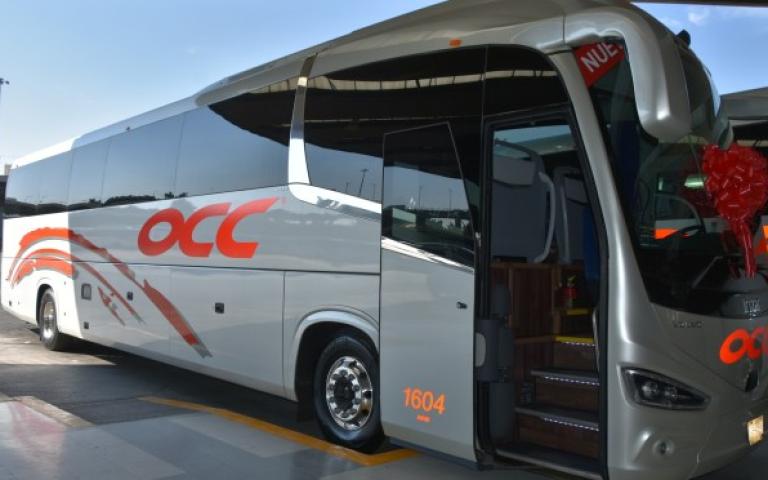The history of Omnibus Cristóbal Colón – OCC dates back to 1930, when a union of bus owners began to connect Mexico City with Cuautla and Cuernavaca in the state of Morelos, until its acquisition in 1988 by ADO (Autobuses Eastern). Today, OCC is one of the brands that is part of Mobility ADO, one of the main passenger transport conglomerates in the Aztec nation.
After the enormous difficulties that OCC had to overcome during the pandemic, which led to a drastic reduction in the operation of the fleet, the company is reunited with its allies and clients, to present its first incorporation in more than two years, with which It shows that he trusts the market and indicates that the most complicated days of this situation that changed the world seem to have been overcome.
“Today is a very important day, because when the pandemic started, the world stopped and with its mobility. Although we never stopped, there was a time when about 4,000 buses were not operating, but always trusting that we were going to get ahead. What we are presenting here is a reflection of the trust we have in Mexico, in the company and, above all, with the most significant thing that we have in our organization: our passengers. We believe that the only way to get ahead is with a lot of work, effort and dedication every day to show our passengers that traveling through southern Mexico with OCC is safe, viable, hygienic and that they can be very calm letting themselves be carried away by the experts, such as Autobuses OCC” mentioned Aldo Alarcón Vargas, General Director of Transportation at Mobility ADO.

In that order of ideas, OCC has opted for one of the combinations preferred by transporters in Mexico in the last year, with the Volvo chassis that serves as a platform to receive the Irizar i6 body, receiving 20 buses with this specification, capable to carry up to 44 passengers and about 13,000 users per month.
The new units will travel to the states of Morelos, Oaxaca, Chiapas where there is informality and high competition. That is why OCC is aware that to endorse this commitment to its travelers, it not only implies incorporating new units, but also with a high-level service.
The Volvo chassis corresponds to the B11R 4X2 model with its 10,800cc, 6-cylinder D11C engine with turbocharger and intercooler, which also meets the Euro 5 emission standard. It delivers 410HP of power and 1,950Nm of torque, figures with which the bus will travel with plenty of capacity to move on any terrain. Additionally, it has a fault diagnosis system (multiplex), self-protection against overheating and low oil pressure, as well as engine fire detection sensors.

To guarantee peace of mind for the occupants, the bus is equipped with the Volvo disc brake system on all axles (EBS5- Electronic Braking System). With this you can control the ABS, the ASR (control traction control), anti-slip system, pad wear sensors, intelligent braking combined with retarder, hill start assist and emergency braking system. The latter includes involuntary lane departure warning, adaptive cruise control and activation of automatic braking when a risk of collision is noticed.
The Irizar i6 body has been the second best-selling body by the Spanish manufacturer in Mexico, following the i5, which is designed for cheaper service lines. The bus has a toilet, 22-inch and 19-inch environmental entertainment screens, USB connections to recharge devices and air conditioning provided by Hispacold (also belonging to the same Irizar business group).

In this way, 2022 begins with the right foot in the highway transport (foreign) of Mexico, which will generate a lot of news due to the arrival of new players in the market, the struggle of the competitors not to lose position and in the same way, if Volvo will continue as leader in the highway segment as it did during 2021, surprising the Aztec market.

